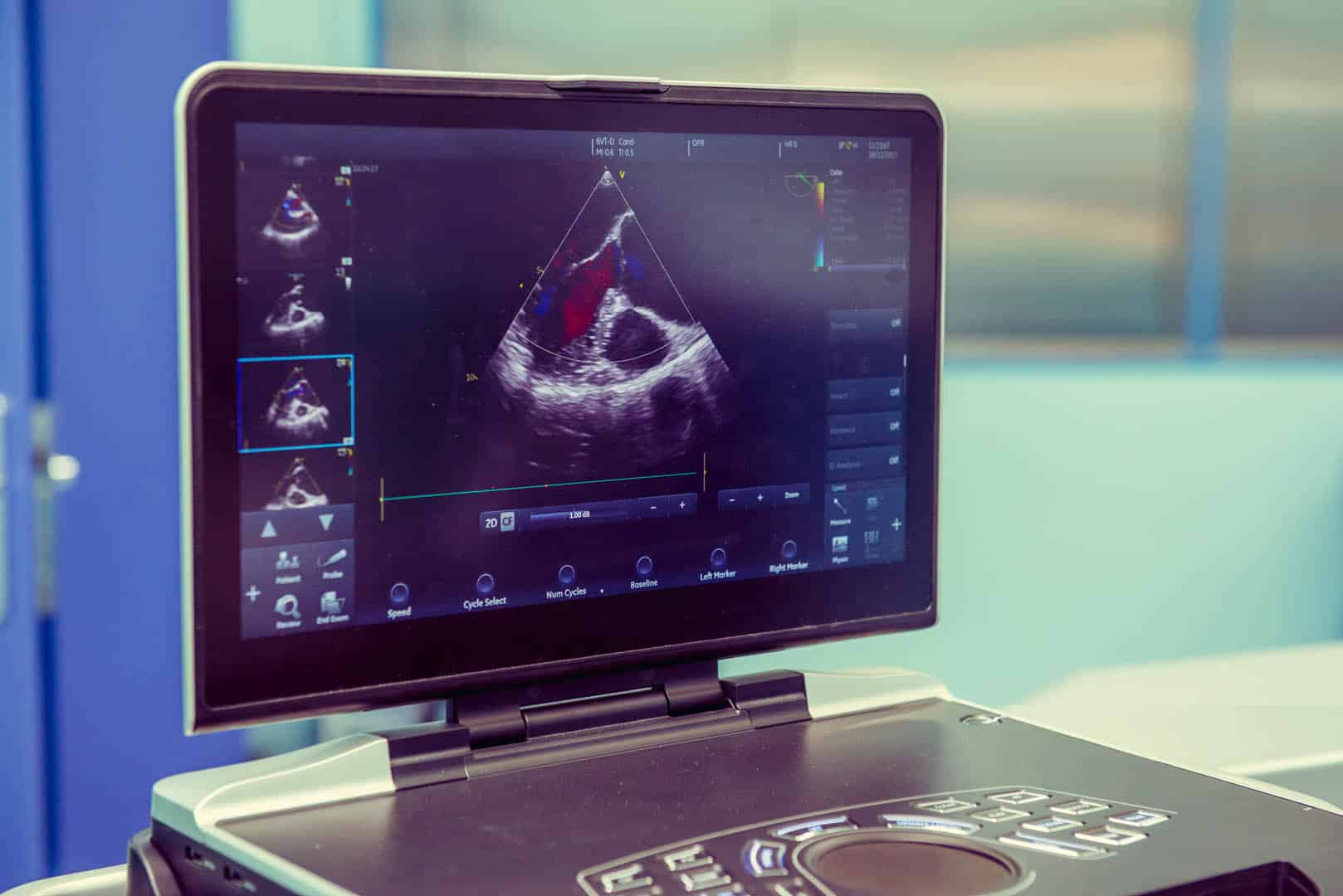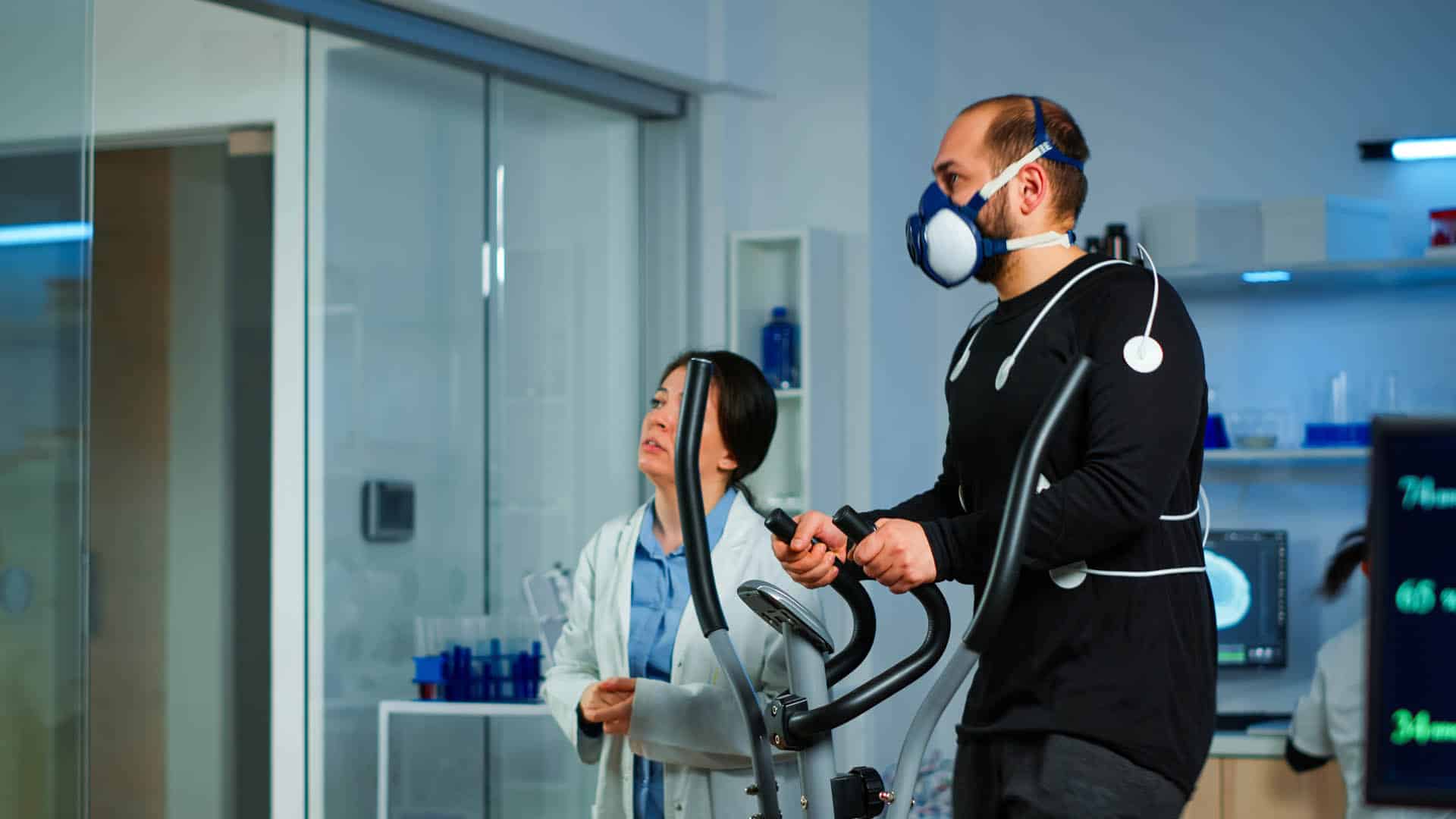Athletic Cardiac Screening – Heart Health Check For Athletes
General Introduction
Over the past two decades, cardiac screenings for elite athletes have become a mandatory requirement of sports competition. In response to high profile events, screenings of amateur athletes have become increasingly recommended. Complete heart screening provides peace of mind, allowing you to compete in sports without fear of a cardiac event.
The minimum requirement of a screening test is a focussed assessment by a specialist in cardiology and a 12-lead ECG (heart tracing). The screening test process can be further enhanced with the addition of a cardiac ultrasound scan (echocardiogram) and blood tests, including blood cholesterol.
Overall, the most common cause of sudden cardiac death (in sports and in general) is a blockage in one of the arteries supplying blood to the heart (a heart attack). A consultation with Dr Jordan, accompanied by an ECG, cholesterol blood test and echocardiogram, will help to check for this. Dedicated testing specifically for coronary artery disease can be organised if necessary thereafter.
Heart Health Screening Test
Your healthy heart screening check will start with a consultation with Dr Jordan. As a minimum, a 12-lead ECG will supplement this as an important test of the electrical processes within your heart and screening test for coronary artery disease, heart muscle problems and inherited cardiac disease.
You are encouraged to discuss your screening test requirements with Dr Jordan and his team before your appointment, so that all of your tests can be combined into one appointment, if possible. In this manner, Dr Jordan will be able to discuss your test results with you at the conclusion of your screening appointment.
Who Needs Sports Cardiac Screening?
Sports screening for heart disease can be delivered for all elite and amateur athletes, either as part of the professional requirement of your sports regulatory body or to address concerns regarding your heart for safe competition.
Cardiac screening can also be offered for those with a family history of heart disease or those worried that heart problems can go undetected for many years before causing sudden symptoms. Dr Jordan is particularly in-tune with this as part of the inspiration for him to become a consultant cardiologist was the sudden death of a close family member. Therefore, if you wish to be considered for screening not related to sports participation, please feel free to be in touch to discuss your personal requirements.
Preparing for your Test
Prior to your screening appointment, it is advisable not to moisturise the skin of your chest, to enable good contact with the ECG stickers. If a cholesterol blood test forms part of the tests selected for you, this is best taken after you have not had anything to eat or drink for 8 hours (usually taken as an early morning blood test), to enable a fasting cholesterol reading.
If you have selected an echocardiogram test as part of your screening tests, this also requires an ECG during the test, though no additional preparation is required.
Results and Treatment
If combined into one appointment, you will be able to receive all of your test results on the day of your cardiac consultation, including your ECG and echocardiogram test results, if applicable.
Cholesterol blood tests take several hours to be reported by the laboratory and therefore, should you wish to receive these test results at the same time as your other results, it would be advisable for this to be arranged either on the morning of your appointment or in the days prior.
If your results indicate that further tests are required, Dr Jordan will discuss this with you and organise these tests himself, either on an NHS or private basis (depending on your preference).
Why Choose a Private Athletic Screening Test?
Aside from cholesterol blood tests, cardiac screening of individuals is rarely available with NHS services. By choosing to have your consultation and/or tests privately, you can be sure that these will be undertaken by Dr Jordan himself and without any waiting lists.
Frequently Asked Questions
Should cardiac screening be compulsory in athletes?
Cardiac screening is compulsory in elite athletes and is recommended for high level amateur sport.
How often should you get your heart checked?
The frequency of cardiac screening depends on the sport in which you participate – please consult your governing body for further advice.
How long is cardiac screening?
Cardiac screening usually consists of a structured consultation, 12-lead ECG and echocardiogram. We usually schedule one hour in total for a cardiac screening appointment.
How do you do a cardiac screening?
Cardiac screening usually consists of a structured consultation, 12-lead ECG and echocardiogram.
What is included in the cardiac screening test?
Cardiac screening usually consists of a structured consultation, 12-lead ECG and echocardiogram, though bespoke packages can be arranged, on request.
DORSET SELF-FUNDING CONSULTATION TARIFFS
Initial appointment: £220 | Follow-up appointment: £150
Or Contact Dr Jordan’s PA directly: 01202 096996


